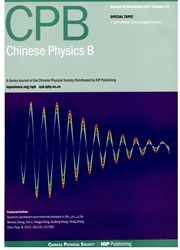

 中文摘要:
中文摘要:
We investigate continuous variable entanglement produced in two distant coupled cavities, in which two four-level atoms are driven by classical fields respectively. Under the large detuning condition, an effective Hamiltonian containing the square of the creation (annihilation) operator of the cavity field is derived. Due to the nonlinearity, entanglement formally created by the beam splitter type interaction is transformed into the nondegenerate parametric down conversion type. Employing the operator algebraic method, we study the time evolution of the entanglement condition, and show that the system provides us an advantage in achieving a larger photon number with better entanglement. We also discuss the dissipation of the cavities affecting the entanglement.
 英文摘要:
英文摘要:
We investigate continuous variable entanglement produced in two distant coupled cavities, in which two four-level atoms are driven by classical fields respectively. Under the large detuning condition, an effective Hamiltonian containing the square of the creation (annihilation) operator of the cavity field is derived. Due to the nonlinearity, entanglement formally created by the beam splitter type interaction is transformed into the nondegenerate parametric down conversion type. Employing the operator algebraic method, we study the time evolution of the entanglement condition, and show that the system provides us an advantage in achieving a larger photon number with better entanglement. We also discuss the dissipation of the cavities affecting the entanglement.
 同期刊论文项目
同期刊论文项目
 同项目期刊论文
同项目期刊论文
 Electromagnetically induced transparency in a quadratically coupled optomechanical system with an at
Electromagnetically induced transparency in a quadratically coupled optomechanical system with an at 期刊信息
期刊信息
